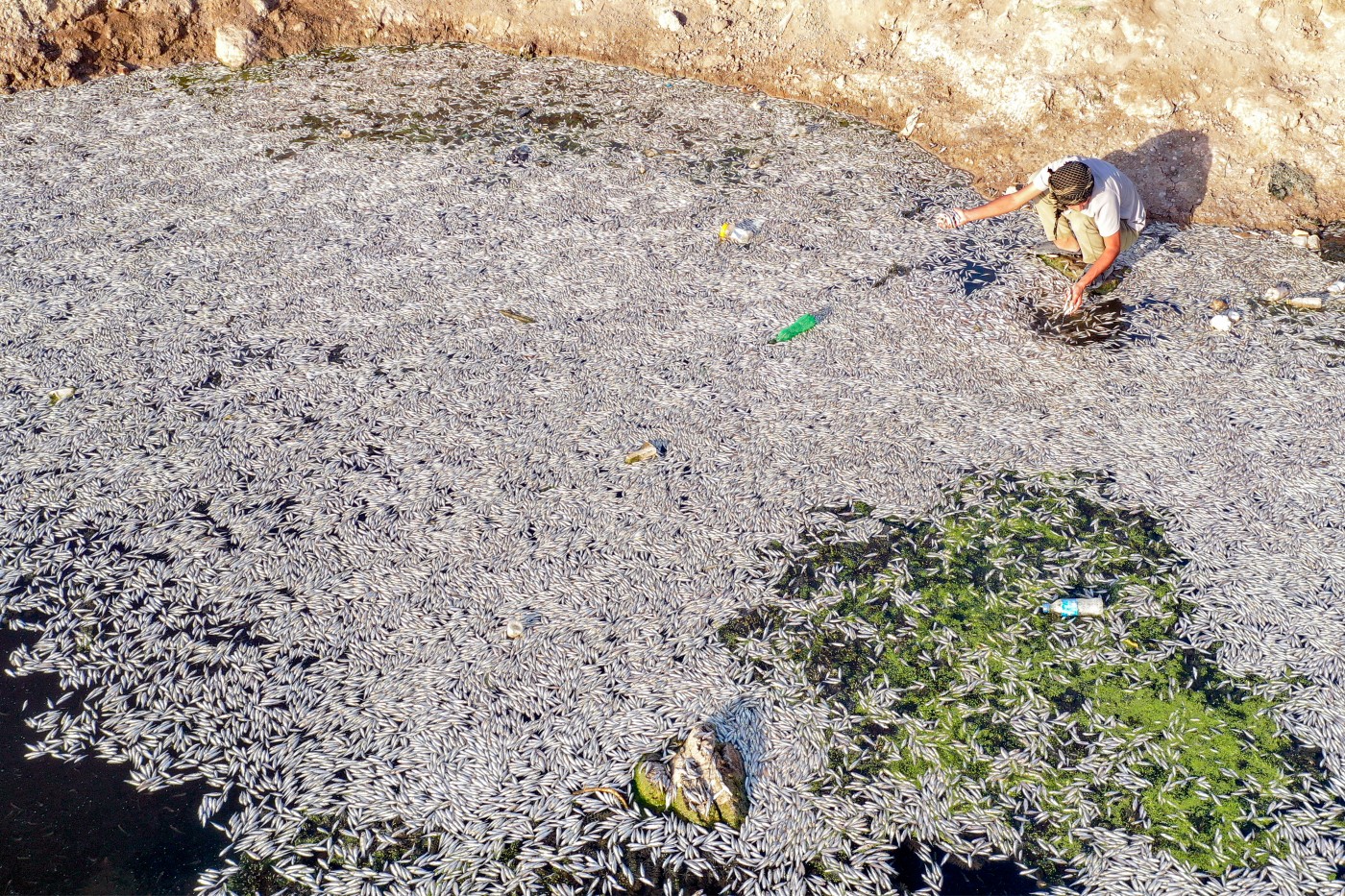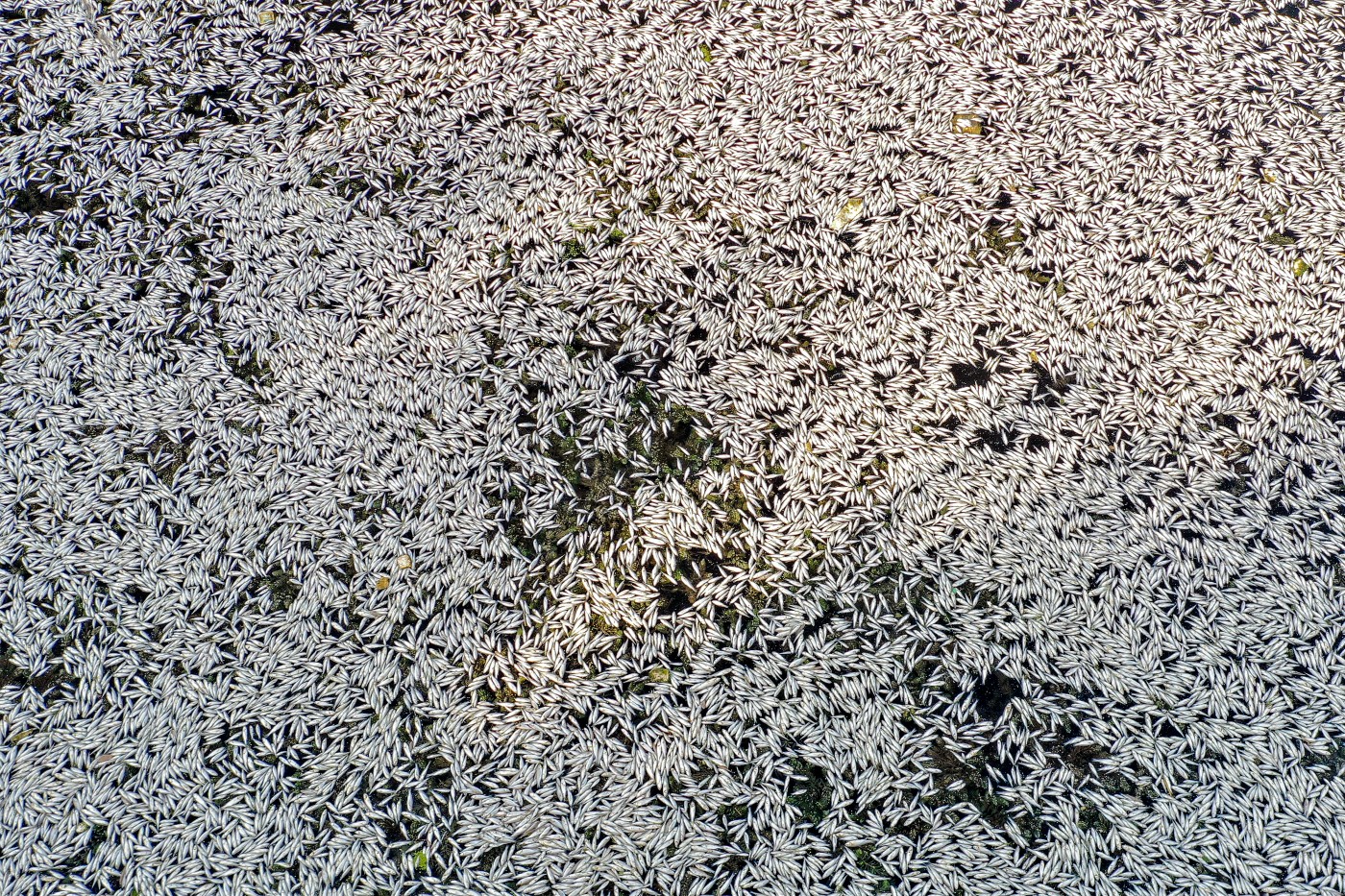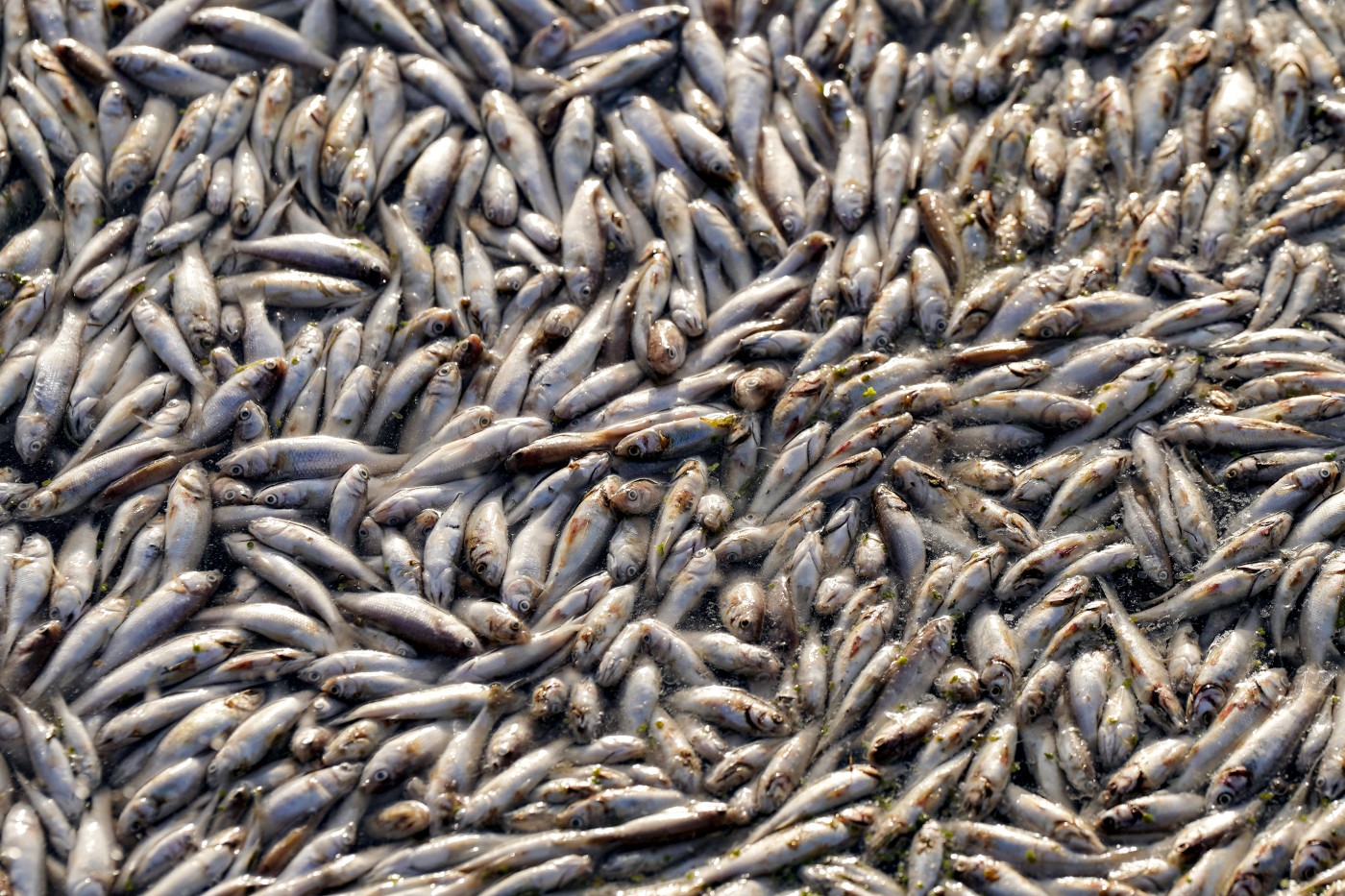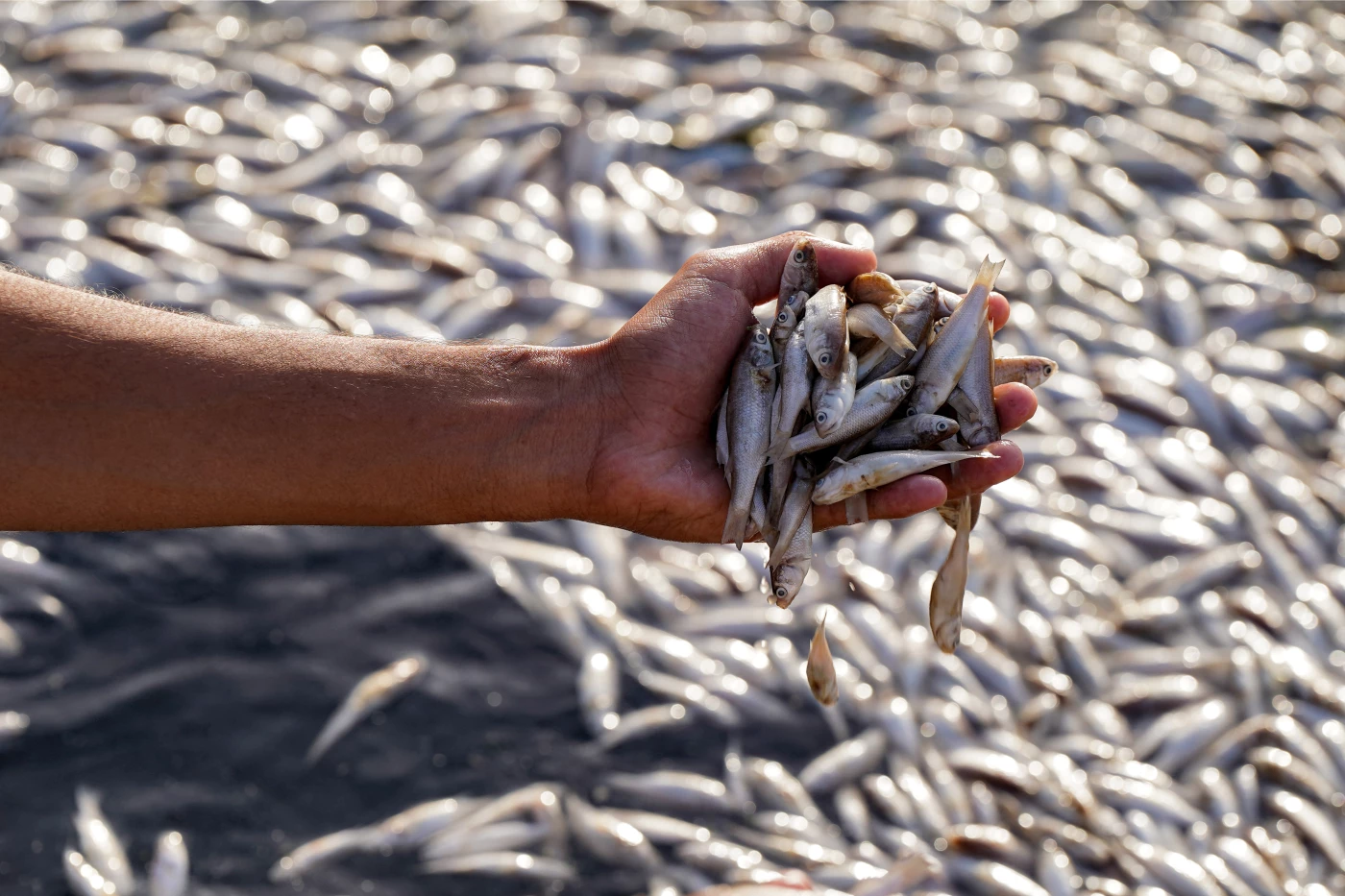ERBIL, Kurdistan Region of Iraq – Iraqi authorities on Monday announced the primary cause of a mass die-off of fish in the country’s southern marshlands was low water flows, not chemical substances, after they launched an investigation into the matter at hand, following widespread anger among the public.
Video footage has circulated across Iraqi social media, showing a large number of silver fish floating in the marshlands of Ibn Najm near Najaf city.

Photo: AFP
"A specialized technical team from the Environment Department headed to al-Hurriya district this morning to inspect the site and determine the causes of the die-off of fish, in response to citizens' complaints and what was circulated on social media platforms,” Abdul Zaid, in charge of Enviornmet Department in Najaf province, told The New Region.
Zaid explained that "the scarcity and stagnation of water led to oxygen shortage, which directly caused the fish deaths, and is the primary cause found so far."
He detailed that "the specific location of the incident is located in the tails of the Abu Halan river, which flows into Ibn Najm marshes, an area that traditionally suffers from drought during this season."
“The technical team took water samples and sent them to environmental laboratories. Initial results showed that the cause was low oxygen, not the presence of toxic substances,” he detailed, elaborating that "the hypothesis of a deliberate act or the use of toxic substances is completely ruled out at this time."

Photo: AFP
The affected site extends over an area estimated at 500 to 600 square meters, while there are no accurate data yet on the number of dead fish.
The official said they would continue to monitor and supply marshes with sufficient water to “maintain their ecological balance, especially during periods of drought.”
The incident is the latest in a string of such events in recent years that have plagued Iraq, with key factors attributed to the severe consequences of drought and significant reduction in water levels due to the construction of dams by neighbouring Iran and Turkey.

Photo: AFP
Fishing in Iraq has a long tradition, being deeply rooted in the country’s history and culture.
The Tigris and Euphrates rivers, as well as a large number of southern marshes, have historically provided fertile grounds for fish populations, supporting fishing communities.
The agriculture ministry official explained that "the annual production of carp fingerlings ranges between 30 and 35 million, while the production of Iraqi fish ranges between two to three million.”
Water scarcity has been a long-standing and critical issue for Iraq, exacerbated by upstream dams constructed by Turkey along the Tigris and Euphrates rivers. These dams have significantly reduced water flow into Iraq, intensifying the country’s existing water shortages.
Iraqi President Abdul Latif Rashid, a former water resources minister, has repeatedly highlighted combating water scarcity as one of the main priorities on his agenda as president of Iraq.


 Facebook
Facebook
 LinkedIn
LinkedIn
 Telegram
Telegram
 X
X



